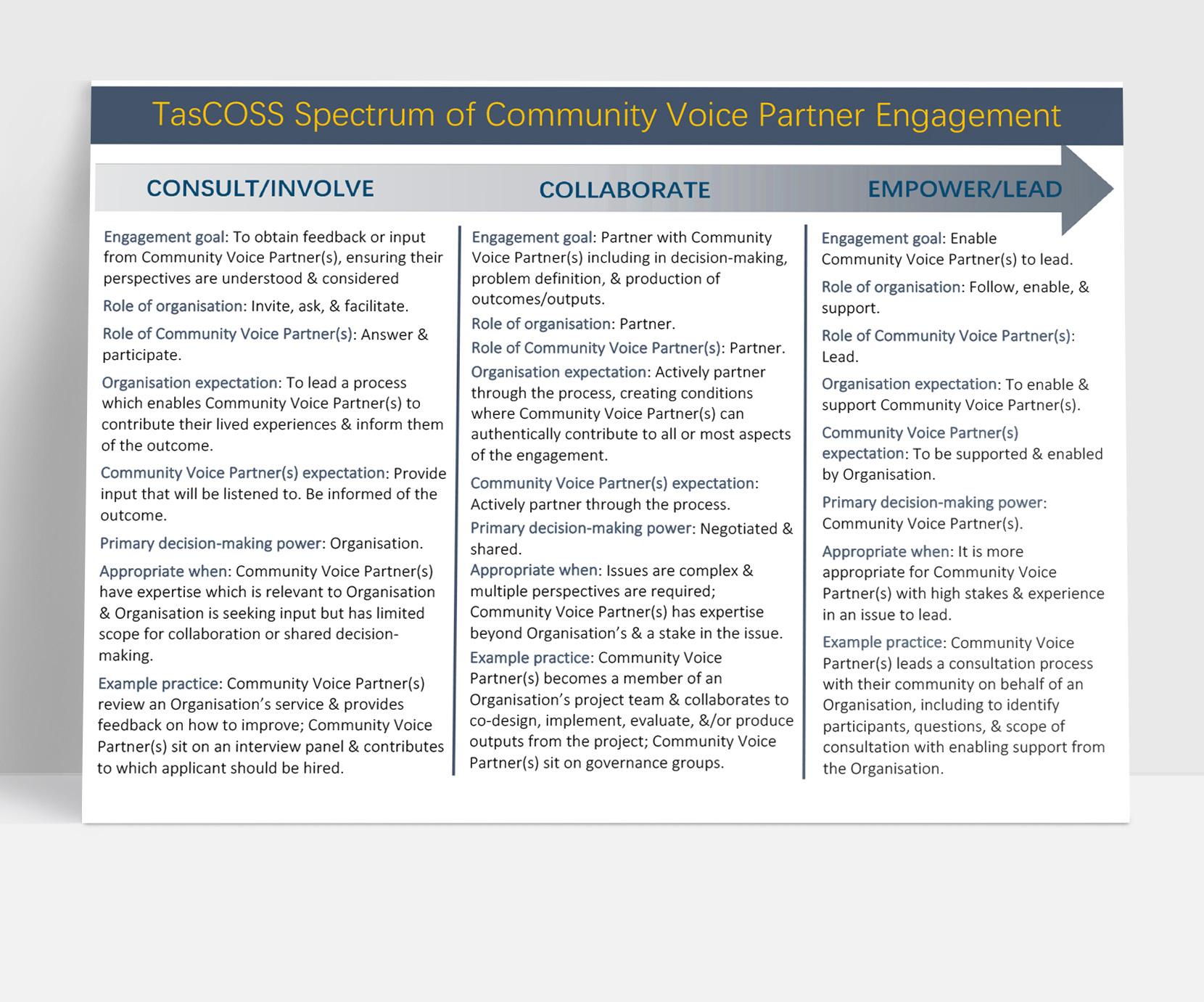
2 minute read
A reflective guide for trauma-informed approaches to being a TasCOSS Community Voice Partner
A REFLECTIVE GUIDE
for trauma-informed approaches to being a TasCOSS Community Voice Partner
Advertisement
Reflecting individually or with others on the below questions can help you take a safe approach to engaging as a Community Voice Partner. The work you do can be challenging and thinking about the below questions may help you to feel prepared, protected, and safe when you share your experiences. It can also help you engage with others in ways that protect their wellbeing too.
Domain
SAFETY
TRUST AND POWER
Prompt questions
What do you need to protect your physical safety? Consider what you need in physical venues, times, or ways of communicating.
What do you need to protect your emotional safety? Consider triggers, potential for upset, being prepared, and feeling in control.
What do you need to protect your social safety? Consider anonymity and confidentiality, who will be in the room, what topics might be discussed.
What does trustworthiness look and feel like? How is it communicated, demonstrated, and enacted?
How can you demonstrate your trustworthiness? Consider honesty, keeping your word, and anything you might wish to communicate to others about your identity, motivations, intentions, or uncertainties.
Have you considered what prejudices, biases, or preferences you have? How might these influence how you engage?
How will you demonstrate you have compassion and respect for others and their circumstances?
Have you considered who might have different levels of power in the room? How might this make you feel? How might these impact the engagement? How can you protect your own wellbeing in such circumstances?
What are your biases? Are you likely to prioritise certain viewpoints or voices ahead of others? Why might this be and what can you do to address this?
CHOICE AND COLLABORATION
Are there opportunities for you to make choices about how you engage? If not, how could you ask for more choices?
How will share your voice in ways which help other people hear you? For example, how will you give feedback or have input in ways other people can understand?
Have you discussed communication preferences and needs with the people you will work with?
How will you communicate to others that you value them and their expertise, and believe that they matter?
DIGNITY
Reflect on your own personal or cultural history. How might your previous experiences of injustice or bias impact your engagement? Can you raise this in your discussions of safety with your organisational partners?
How can you prepare for situations where you feel like you aren’t being heard or respected? What will you do to calmy assert your voice and right to be respected?
What are your vulnerabilities in this work? What are your doubts? What do you feel like you don’t know, or don’t know enough about? How will you address these? Where might you find support?
Here’s some space for you to take notes as you work through the reflection questions:
This resource was adapted from the guide to ‘Trauma-informed and dignifying practice in qualitative research’ (Moran & Ridley).



